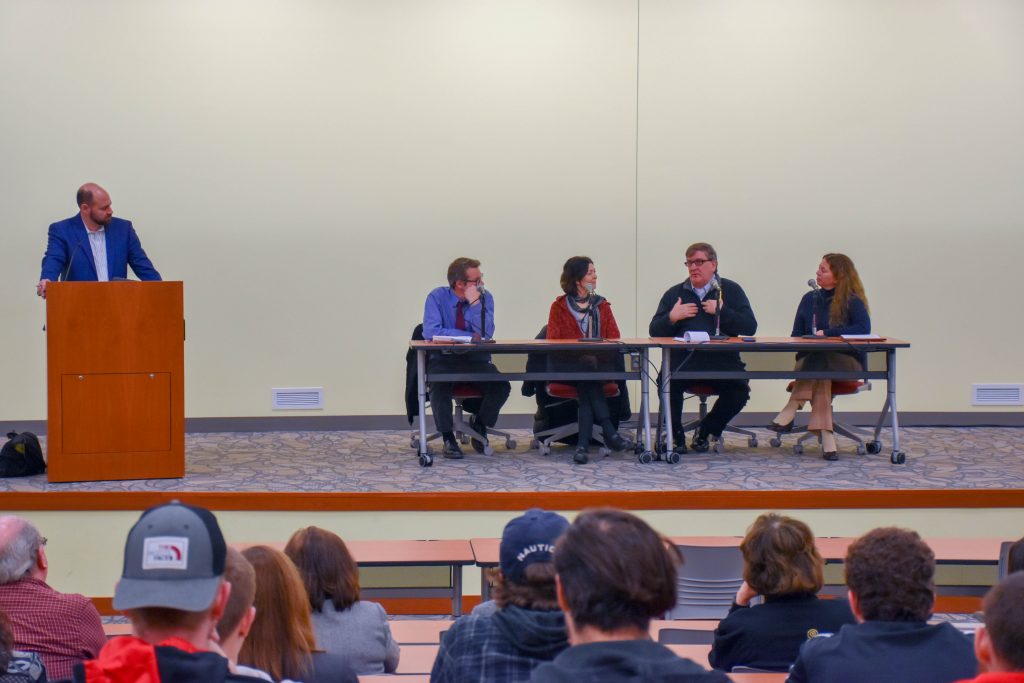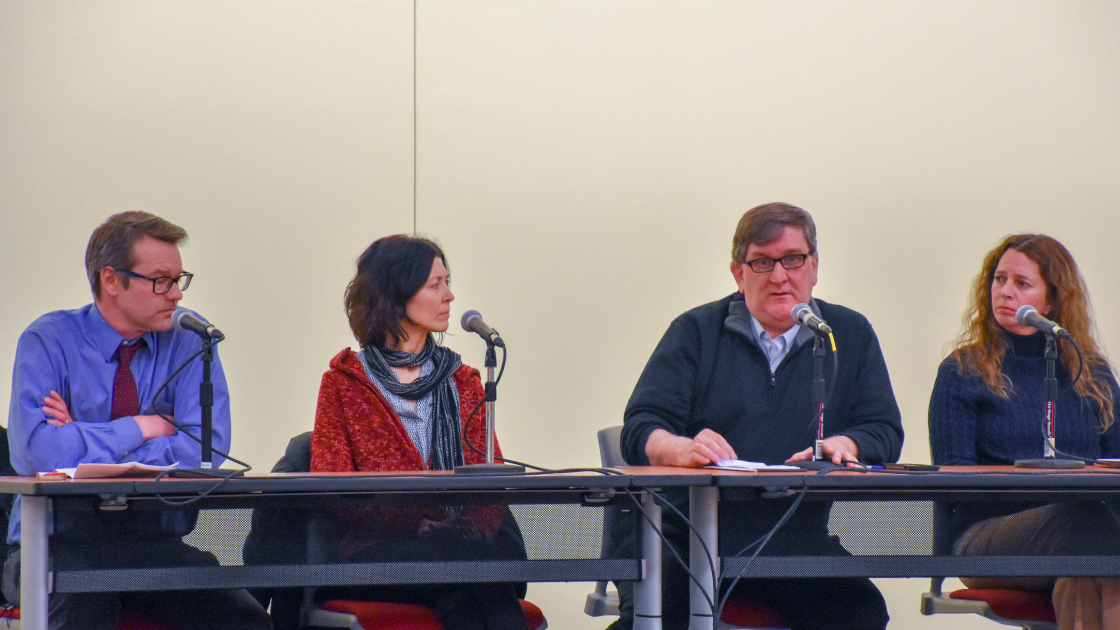In response to the growing spotlight on the Catholic Church’s sexual abuse crisis, Gwynedd Mercy University hosted an informative panel discussion exploring the ongoing sexual misconduct from various perspectives, including a current clergy member and experts on trauma, religious studies, and media.
Patrick McGrain, PhD, Associate Professor of Criminal Justice at GMercyU, acted as moderator, leading the group of panelists in a discussion of how the Catholic Church could and should address the sexual abuse crisis and make the necessary amends.
“It would be great if we had a voice that could talk to them directly,” said McGrain, as he welcomed attendees. “So I think that the next best thing is for us to have a conversation among ourselves so that people understand that this is not happening in silence.”

The panel featured experts from varying disciplines who each shared their unique viewpoints, including Jennifer Wade, PhD, Assistant Professor of Religious Studies at Gwynedd Mercy University and Father John Collins, CSsR, a current member of the clergy and former Chaplain of GMercyU.
Anguished by the pain and suffering that has been endured over the years at the hands of Catholic priests, Father Collins has hope for the future and acknowledges the hard work that is required for change.
“It’s incredibly sad, and yet at the same time, I think the opportunity is real and here for new beginnings,” said Father Collins. “But that will not happen without participation and cooperation and confrontation, healthy and wholesome, of the challenges and the need to ask for forgiveness, to work to its reconciliation, and to meet the demands of justice.”
Another panelist, Janice Nuss, MSW, LCSW, GMercyU’s Assistant Professor of Social Work, brought another angle to the discussion: the victims. As a clinical social worker and trauma therapist, Nuss urged listeners to be aware that the impact of the Church’s sexual misconduct has a large reach.
“We have to think of two categories of victims here,” said Nuss. “We need to think about the primary victims: the people, the children, and countless others who are first-hand survivors of abuse. But then secondly, we need to think of the vicarious trauma that has impacted the whole congregation.”
As the discussion continued, the panelists agreed that there were many factors that have contributed to this crisis, including abuse of power, lack of accountability, and structuring of the Catholic Church. Along with these factors, there was further conversation about how the Catholic Church can be accountable for the wrongs of their clergy members and prevent future scenarios. Across the board, the panelists agreed that confrontation is the first step to instituting real and meaningful change.
“The scandal is here and now and we all have to confront it. Nobody can be surprised. No one can say they cannot believe it,” said panelist Janis Chakars, Associate Professor of Communications and Digital Media at Neumann University. “We the readers, the viewers, the listeners, and we the citizens have to confront the fact that priests over decades have victimized thousands of children. We have to confront the fact that the world’s largest church allowed this to happen. And we have to confront the fact that our neighbors, our friends, our families, our communities, here and across the world, will share this pain.”
But from this pain comes the opportunity for positive change. And although enacting this change is a slow process, there is progress is being made, one discussion at a time.
Feature image courtesy of Gwynedd Mercy University: From left to right: Janis Chakars, PhD, Jennifer Wade, PhD, Father John Collins, CSsR, and Janice Nuss, MSW, LCSW.

